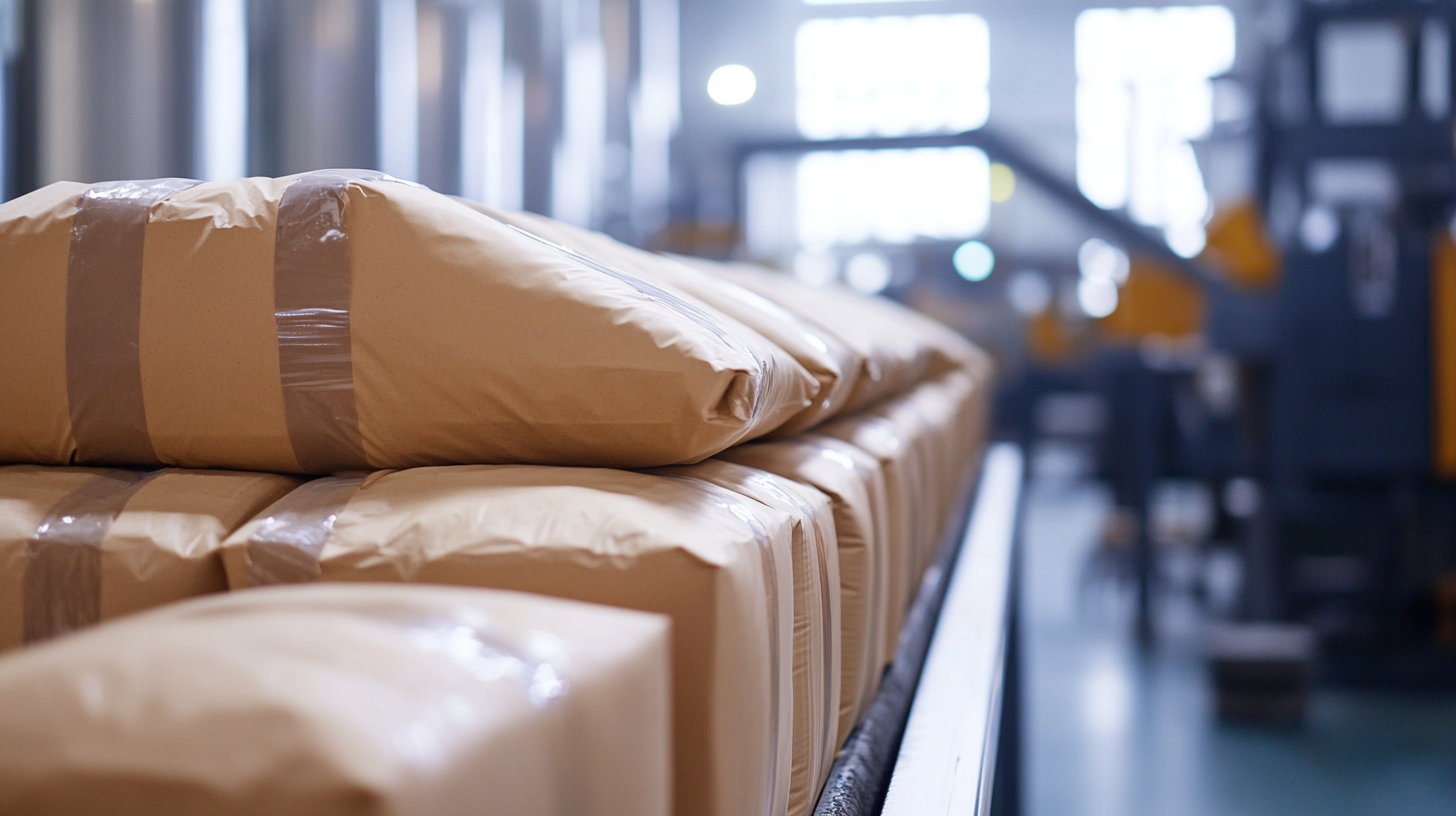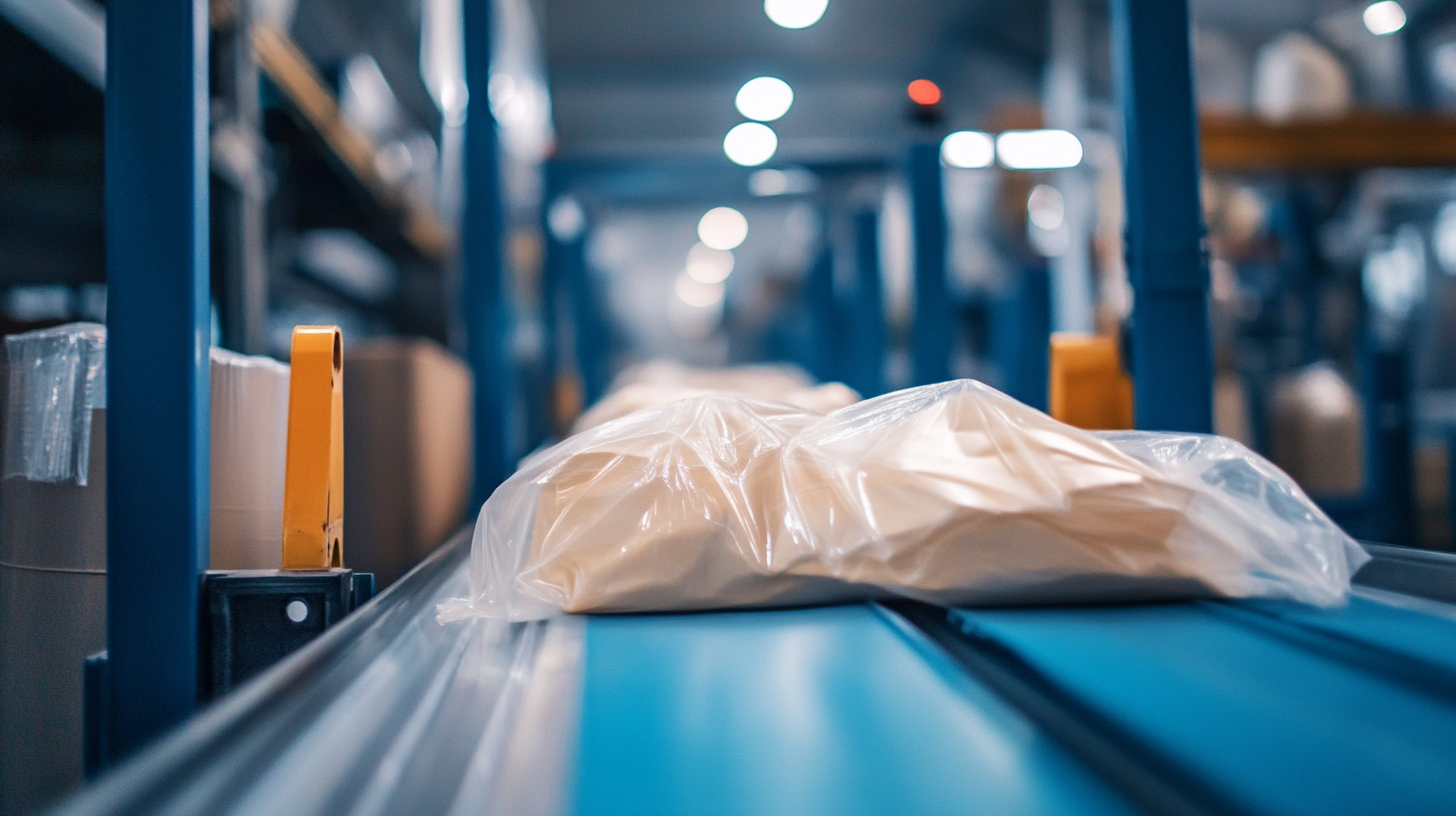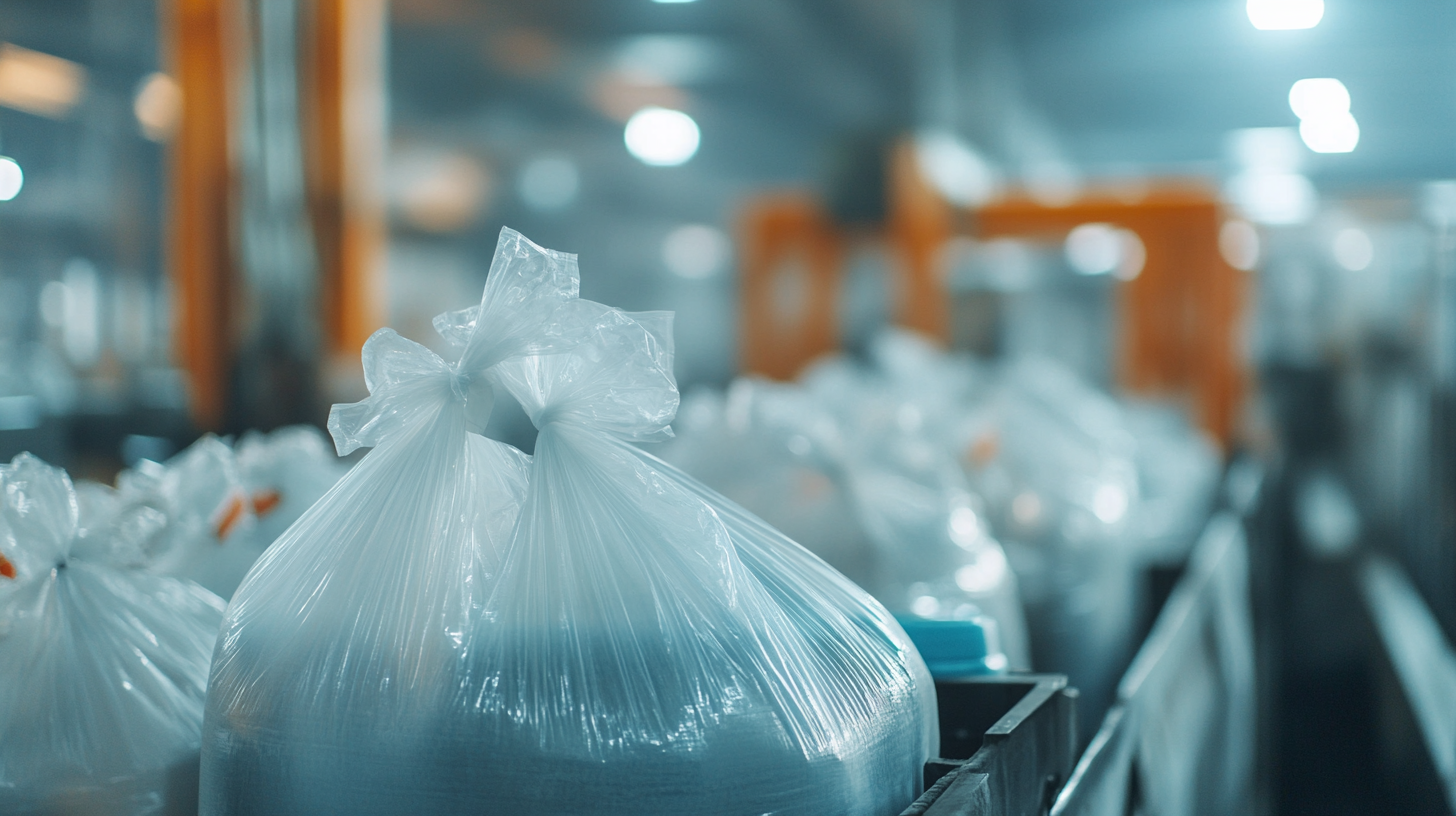- Phone:+86 15218629499
- Phone: +86 15766990063
- E-mail: Yzprinting01@163.com
In today's global marketplace, the demand for effective and sustainable packaging solutions has never been more crucial. As businesses strive to minimize their environmental footprint while optimizing logistics and cost-efficiency, **Pp Bag Packing** has emerged as a popular choice among manufacturers and retailers alike. According to a recent report by Smithers Pira, the global flexible packaging market, which includes Pp bags, is projected to reach $300 billion by 2024, driven by increasing consumer preference for lightweight and recyclable materials. This shift is indicative of a broader trend towards sustainability, making it imperative for companies to consider the quality of their packaging choices.
Sourcing quality Pp bag packing requires careful attention to various factors, including material grade, supplier reliability, and adherence to safety standards. The 2022 Packaging Industry Trends report revealed that 64% of consumers are more likely to choose brands that utilize environmentally friendly packaging. Therefore, businesses must prioritize not only functionality but also the ethical implications of their packaging materials. This blog will provide essential tips for sourcing high-quality Pp bag packing worldwide, ensuring that companies are well-equipped to meet both consumer demands and regulatory requirements in an increasingly competitive landscape.

When it comes to sourcing quality PP bag packing, understanding the importance of quality cannot be overstated. Polypropylene (PP) bags have gained immense popularity due to their strength, lightweight nature, and resistance to moisture. According to a report by MarketsandMarkets, the global polypropylene market is expected to reach USD 160.3 billion by 2026, growing at a CAGR of 5.3%. This rapid growth highlights the increasing reliance on PP bags in various sectors, including retail, agriculture, and packaging. Quality in PP bag packing plays a crucial role in ensuring product safety and integrity. Poor-quality bags can lead to leaks, tears, or laminate separation, jeopardizing the goods they carry. A study by the Flexible Packaging Association indicates that 54% of companies experienced product damage due to substandard packaging. Investing in high-quality PP bags not only mitigates these risks but also enhances brand reputation by portraying a commitment to quality. Moreover, sustainability is becoming an indispensable aspect of packaging quality. A report from Grand View Research estimates that the global eco-friendly packaging market size will reach USD 600 billion by 2025, with consumer preference shifting towards sustainable options. Quality PP bags made from recycled materials or designed for recyclability contribute to environmental preservation while meeting consumer demands for sustainable packaging solutions. Thus, sourcing quality PP bags is not just a necessity for product protection but also a strategic move towards sustainability in packaging.

When sourcing polypropylene (PP) bags globally, several key factors should be carefully considered to ensure quality and reliability. First and foremost, understanding the material itself is crucial. Polypropylene is known for its durability, lightweight nature, and versatility, making it a preferred choice for various packaging needs. However, not all PP bags are created equal. It's essential to assess the material's thickness and tensile strength, as these characteristics will directly impact the bag's performance in real-world applications.
Another important aspect to consider is the supplier's reputation and reliability. Conducting due diligence by researching potential vendors can save time and resources in the long run. Look for suppliers who have established themselves in the industry, possess relevant certifications, and can provide customer testimonials or case studies. Effective communication with suppliers is also vital; they should be readily available to answer questions about production processes and quality control measures.
Lastly, understanding the geographic dynamics of sourcing is key. Different regions may offer varying levels of craftsmanship, availability of raw materials, and shipping logistics. Factors such as customs regulations, tariffs, and lead times can significantly influence pricing and delivery schedules. By taking the time to evaluate these aspects, businesses can strategically choose their sourcing partners and secure PP bags that meet their quality standards and operational needs.

When sourcing quality PP bags for packing, the reliability of your suppliers is paramount. One of the first signs of a trustworthy supplier is their transparency. Reliable suppliers are open about their manufacturing processes, materials used, and provide clear certifications that comply with international quality standards. This transparency not only ensures the quality of the packaging but also builds trust in the business relationship.
Another key indicator of supplier reliability is their experience in the industry. Suppliers that have been in the market for several years often have a robust track record and an established clientele. Investigating their previous work, including testimonials and case studies, can provide insight into their capabilities and customer satisfaction levels. Moreover, reputable suppliers will often be willing to showcase their previous projects, reinforcing their commitment to quality and service.
Communication plays a crucial role in identifying a reliable supplier. A dependable supplier will respond promptly to inquiries and engage in meaningful discussions regarding your specific needs. They should be willing to answer any questions you may have about their products and demonstrate a proactive approach to problem-solving. A supplier that prioritizes communication will not only help in sourcing quality PP bags but will also ensure a smoother transaction throughout the supply chain.

When sourcing PP bags for packaging, navigating international trade regulations is crucial for ensuring compliance and optimizing sourcing strategies. Many countries have established a complex framework of trade regulations that can significantly impact the import and export of packaging materials. The World Trade Organization (WTO) reports that compliance with trade regulations can affect up to 80% of a company's total supply chain costs, highlighting the importance of understanding these regulations.
Recent trends suggest that more businesses are leveraging international free trade agreements (FTAs) to gain advantages in their sourcing practices. For instance, The International Trade Centre (ITC) estimates that utilizing FTAs can reduce tariff barriers by an average of 10%, making it more economically feasible to source quality PP bags from specific regions. Companies need to stay informed about the FTA provisions that apply to their products and ensure they meet the rules of origin requirements.
Additionally, staying updated on certification and compliance standards is essential. The Global Industry Classification Standard (GICS) categorizes the packaging sector as one of the most regulated industries. In 2023, new regulations were introduced affecting the sourcing of plastic packaging, necessitating tighter controls on recyclability and sustainability practices. Failure to comply with these regulations can result in penalties and disrupt supply chains. Businesses that proactively adapt to these regulatory changes not only mitigate risks but can also position themselves as leaders in sustainability in the competitive packaging market.
When it comes to sourcing quality polypropylene (PP) bags on a global scale, understanding cost-effective strategies is critical for businesses aiming to maintain quality while staying within budget. According to a report by Grand View Research, the global polypropylene market is expected to reach USD 228.49 billion by 2025, growing at a CAGR of 5.7%. This growth underscores the increasing demand for PP bags across various industries, including food packaging, agriculture, and retail.
One effective strategy for purchasing high-quality PP bags is to focus on suppliers who emphasize sustainable production practices. Research by the International Journal of Polymer Science indicates that eco-friendly PP bags not only meet environmental standards but can also reduce costs in the long run due to lower material usage and waste generation. By establishing relationships with suppliers committed to sustainability, businesses can source bags that are both cost-effective and environmentally responsible.
Furthermore, leveraging technology to streamline the sourcing process can significantly reduce costs. Data from a McKinsey report highlights that digitization in supply chains can reduce procurement costs by 20-30%. By utilizing online sourcing platforms and data analysis tools, companies can better identify suppliers that offer the best prices without compromising on the quality of PP bags. This approach not only saves money but also increases accessibility to a wide range of global suppliers, thus enhancing competitive advantage.
